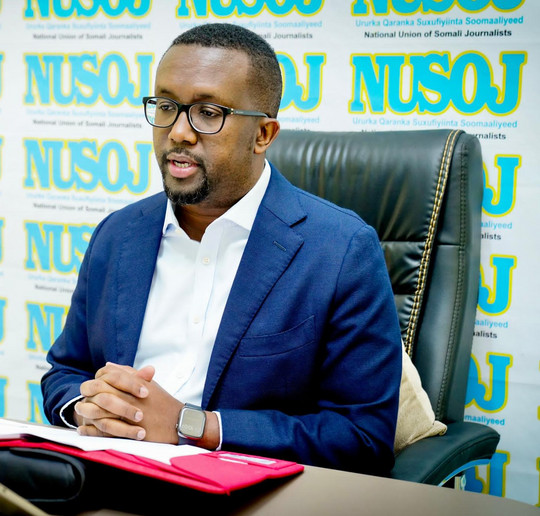The safety of journalists, said Faruk, is not only a professional concern, but also a profound human rights matter at the heart of our democratic values, our mandate as human rights defenders and the rights of African citizens to be well-informed.
"Today's PSC meeting, the first of its kind, will be remembered as a landmark event where the Council not only demonstrates its commitment to safeguarding African journalists and upholding the right to information under the most challenging circumstances but also sends a powerful message of solidarity to journalists across Africa". Faruk, emphasised that journalists across the continent, are operating under increasingly perilous environments. ‘ The nature of armed conflicts has evolved, with new non-state actors employing violent extremism, making the task of collecting and disseminating truthful information fraught with danger. Journalists face threats, harassment, unlawful detention and even death in the execution of their noble duties. These acts of violence against media professionals are direct attacks on freedom of expression, media freedom and the right to information’.
He added that female journalists not only confront these same dangers but also endure additional gendered threats, including online and offline harassment, sexist stereotypes, threats of rape, blackmail and other malicious attacks. These relentless assaults have forced some female journalists to abandon their careers, underscoring the severe and unique challenges they face in their courageous pursuit of journalism.
Faruk highlighted that journalists in Africa face two significant safety crises: physical safety and legal safety. "Physical threats include direct violence, such as assaults, kidnappings and targeted killings, particularly in conflict zones’. These threats, he said, create a chilling effect, forcing many journalists into self-censorship, exile, or to abandon their profession altogether. The hostile environment in which they operate, often with little protection or support, severely undermines their ability to report freely and fairly. Legal safety on the other hand is another pressing issue, with many journalists facing arbitrary arrests, legal harassment and intimidation through restrictive laws, some of which date back to the colonial era. ‘In some African countries, vague and overly broad laws on defamation, sedition and state security are frequently used to silence dissenting voices and critical journalism. These legal threats create an environment of fear and uncertainty, stifling freedom of expression and media independence. In short, we are witnessing the weaponisation of the law against media organisations and journalists in certain cases".
According to the International Federation of Journalists (IFJ), "In the past 10 years, over 110 journalists have been murdered in Africa while bravely doing their jobs". Faruk noted that these, are not just numbers; but they represent the lives of professionals targeted for their commitment to journalism. "The loss of even a single journalist is a profound injustice and these deaths serve as a powerful call to action to protect those who risk everything to keep the public informed".
Faruk called on the PSC of the AU to ensure and guarantee a peaceful and secure environment for sustainable development. The Peace and Security Council (PSC) he said, has the capacity to address the dangers faced by journalists, much like the UN Security Council. This, he stressed, can be achieved by promoting the establishment of rapid response mechanisms, creating safe zones for journalists in conflict areas within peacekeeping missions, advocating for a conducive legal environment, enhancing the role of media in promoting a culture of peace, fostering understanding and preventing the recurrence of conflicts. Additionally, addressing the culture of impunity surrounding crimes committed against journalists, enforcing decisions made by the AU and its organs and advocating for the revision and repeal of restrictive laws are crucial steps.
FAJ calls on the PSC and the African Union Commission (AUC) to establish the African Group of Friends of the Safety of Journalists, similar to other continents, to champion and prioritise the protection of journalists as a key component of conflict resolution and peacebuilding strategies.

